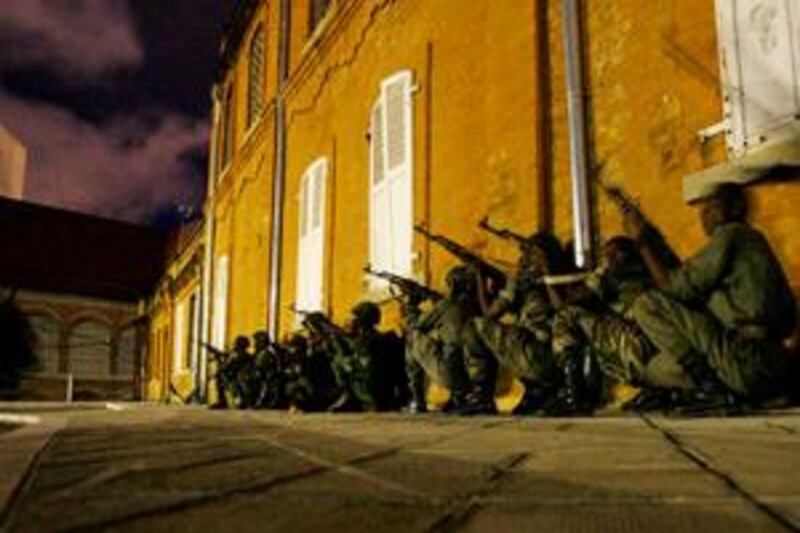Soldiers in Madagascar seized a presidential palace and the central bank today in a show of force further isolating President Marc Ravalomanana in his power struggle with opposition leader Andry Rajoelina. Soldiers stormed the buildings in the heart of the capital straight after the security forces publicly backed Mr Rajoelina, who say the president is an autocrat running the Indian Ocean island like a private company.
Under growing pressure to resign, Mr Ravalomanana today offered to hold a referendum and let the people decide who should run the country, but Mr Rajoelina rejected the call and asked the security forces to arrest the president. Mr Ravalomanana is holed up in another presidential palace about 10km from the city centre. The army said it had no orders to attack the president's residence. "The palace is occupied. This was our mission for today. For now, we have no more orders," an army colonel, who declined to be named, told Reuters inside the palace complex.
Madagascar's army has traditionally remained neutral during bouts of political volatility, but its backing of Mr Rajoelina seems to have boxed Ravalomanana into a corner. "A referendum looks like history now. It looks like the people and the army are with Rajoelina," said Lydie Boka, an analyst at New York-based company Strategie Co. There was no immediate comment from either leader. The political crisis has killed at least 135 people, the country's $390 million-a-year tourism sector is nosediving, and foreign investors in the important mining and oil exploration sectors are watching events nervously.
Mr Rajoelina, 34, a former disc jockey who was sacked as Antananarivo's mayor last month, has been leading anti-government demonstrations since the start of the year. The president's supporters call Rajoelina a troublemaker bent on seizing power illegally. While Mr Rajoelina has tapped into widespread public discontent, especially with high levels of poverty, many inhabitants are fed up with the unrest and the military has been calling on the feuding leaders to resolve the crisis.
"We are there for the Malagasy people. If Andry Rajoelina can resolve the problem, we are behind him," said Col Andre Ndriarijaona, who led a mutiny last week and replaced the previous army chief of staff. Soon after the colonel's statement, bursts of gunfire and explosions rocked the capital as tanks burst into the palace grounds, but there was little resistance. Before the storming of the palace, the African Union condemned what it called an attempted coup by the opposition and urged the people of Madagascar to respect the constitution.
"The situation in Madagascar is an internal conflict. It is an attempted coup d'etat. We condemn the attempted coup d'etat," Edouard Alo-Glele, Benin's envoy to Ethiopia, said after an emergency meeting of the AU's Peace and Security Council. The European Union warned it would shun anyone coming to power by force in Madagascar and repeat the steps it took after a military coup in Mauritania. The EU froze development aid to the west African country when soldiers seized power.
"The European Union of course rejects each act of violence and if a new chef d'etat is established by pure force, military force, or against the constitution, that is not somebody we consider," said Czech foreign minister Karel Schwarzenberg. Analysts say finding a way out of the impasse that does not alienate the international community will be a factor Rajoelina's camp will take into account. But the opposition leader said on Monday he was "impatient" for power.
"The international community has already said it won't accept a non-constitutional solution but with so many people below the poverty line I can't see the international community abandoning Madagascar in the long run, and (Rajoelina) knows this," said Boka at Strategie Co. * Reuters





